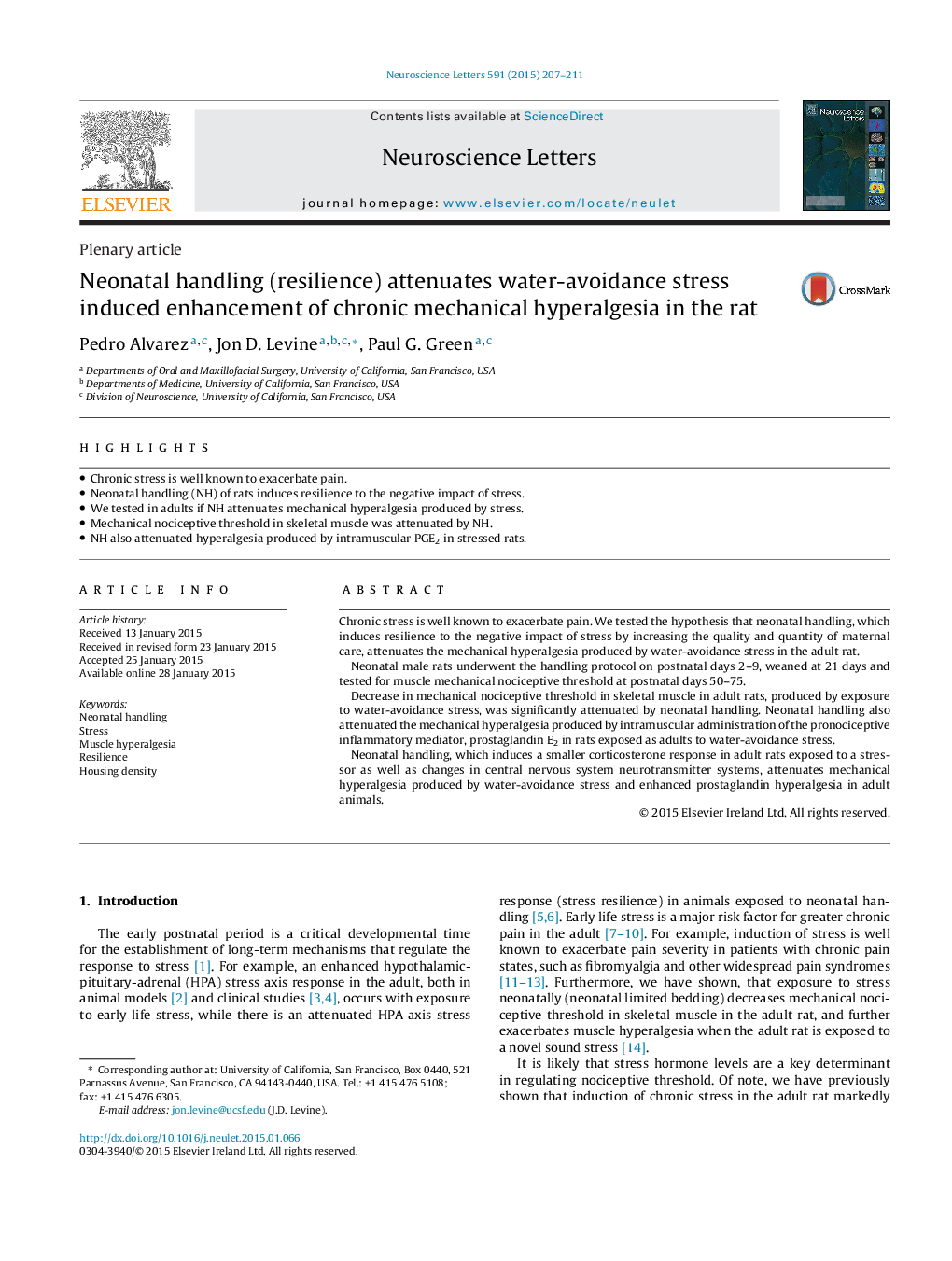| Article ID | Journal | Published Year | Pages | File Type |
|---|---|---|---|---|
| 6280840 | Neuroscience Letters | 2015 | 5 Pages |
â¢Chronic stress is well known to exacerbate pain.â¢Neonatal handling (NH) of rats induces resilience to the negative impact of stress.â¢We tested in adults if NH attenuates mechanical hyperalgesia produced by stress.â¢Mechanical nociceptive threshold in skeletal muscle was attenuated by NH.â¢NH also attenuated hyperalgesia produced by intramuscular PGE2 in stressed rats.
Chronic stress is well known to exacerbate pain. We tested the hypothesis that neonatal handling, which induces resilience to the negative impact of stress by increasing the quality and quantity of maternal care, attenuates the mechanical hyperalgesia produced by water-avoidance stress in the adult rat.Neonatal male rats underwent the handling protocol on postnatal days 2-9, weaned at 21 days and tested for muscle mechanical nociceptive threshold at postnatal days 50-75.Decrease in mechanical nociceptive threshold in skeletal muscle in adult rats, produced by exposure to water-avoidance stress, was significantly attenuated by neonatal handling. Neonatal handling also attenuated the mechanical hyperalgesia produced by intramuscular administration of the pronociceptive inflammatory mediator, prostaglandin E2 in rats exposed as adults to water-avoidance stress.Neonatal handling, which induces a smaller corticosterone response in adult rats exposed to a stressor as well as changes in central nervous system neurotransmitter systems, attenuates mechanical hyperalgesia produced by water-avoidance stress and enhanced prostaglandin hyperalgesia in adult animals.
